-
About
- About Listly
- Community & Support
- Howto
- Chrome Extension
- Bookmarklet
- WordPress Plugin
- Listly Premium
- Privacy
- Terms
- DMCA Copyright
- © 2010-2025 Boomy Labs


 Yoel Ben-Avraham
Yoel Ben-Avraham
Listly by Yoel Ben-Avraham
A list of resources to explore the various aspects of the questions surrounding the coexistence of Arabs & Jews in the city of Jerusalem

The Seeds of Peace Center for Coexistence in Jerusalem held activities in seven main categories: Intensive Dialogue, Public Presentations, Creative Expression, Leadership Training and Empowerment, Enhancing Knowledge and Raising Awareness, Experiential Learning, and Written Expression. Read an article about the Center’s opening »
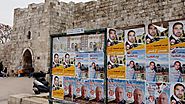
Normalization grows - Jewish-Arab Coexistence in Jerusalem and Local Elections - Nadav Shragai
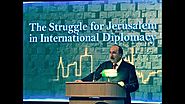
On Sep. 5, 2017, Amb. Dore Gold presented 3,000 years of Jewish history in Jerusalem to the Royal United Services Institute for Defense and Security Studies in London, England’s oldest think tank.
See his full presentation on “The Struggle for Jerusalem in International Diplomacy.”
His name is Stephen Schwebel, he became legal advisor to the State Department, and later, he advanced to become the President of the International Court of Justice in The Hague.
Schwebel wrote in 1970 that the rights of a state acting in self-defense to territory are superior to the rights of an aggressor attacking that very same territory.
He compared Israel’s rights to other claimants at the time. In his own words, and I’m quoting him, “Israel has better title in the territory of what was Palestine, including the whole of Jerusalem…” Jerusalem, according to this analysis, was legally captured in a war of self-defense.
Look around us – across the Middle East. Violent intolerance is destroying holy sites everywhere. That is – almost everywhere. Not in Israel. The fact is that not only does Israel not compromise holy sites, it stands out as the only protector of such sites in the entire Middle East. But it is clear that in a violent intolerant Middle East, only a free and democratic Israel will safeguard the holy sites of all faiths.
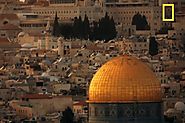
Just over a year ago I started filming for a web series produced by National Geographic. My goal was to highlight the conflicting narratives and the different points of view while inspiring hope. As Obama is visiting the region, I no longer believe that he or other leaders will bring an end to this conflict. It must be people who lead the leaders. However, I have found that the majority of Israelis and Palestinians are indifferent and ineffective. Indifference is the greatest enemy to peace and justice. In this series, I try to understand why this conflict is still going on. I try to examine the narratives and perspectives. But most importantly I also explore the effect of interactions between the sides.
This special online 4-part video series, Conflict Zone, follows Aziz Abu Sarah, a cultural educator, a native of Jerusalem, and a National Geographic Emerging Explorer who works in international conflict resolution.
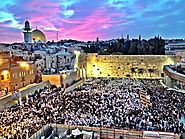
A Q&A exploring the history of Jerusalem, at the heart of the three Abrahamic faiths
For a long time when Muslims prayed, they faced Al-Aqsa Mosque in Jerusalem
We shouldn't forget centuries of peaceful coexistence between Jews, Christians and Muslims in Jerusalem
The world is complex and Jerusalem is complex; you can't just solve things by changing the capital
President Donald J. Trump has broken with decades of U.S. policy by recognizing Jerusalem as the capital of Israel.
The status of Jerusalem, which has historic and religious sites that are significant to Christianity, Islam and Judaism, is among the most contentious issues in discussions over bringing peace to the Israeli-Palestinian conflict. Israel captured Eastern Jerusalem in the 1967 war, and its control there has not been recognized internationally.
Leaders in the Middle East, Europe and the UN met Trump’s speech with concern, many citing the international consensus that the status of Jerusalem should be negotiated as part of any settlement between Israel and Palestine.
WikiTribune interviewed Shanon Shah, deputy editor of London-based journal Critical Muslim to discuss the history behind the dispute over Jerusalem, and its significance to the Muslim world.

JAKARTA, 15 December — As the two-day International Conference on the Question of Jerusalem concluded this morning, experts in a plenary session on historical and contemporary models of coexistence provided a glimpse of the city’s past and present while offering suggestions for the future.
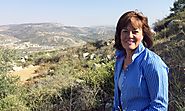
The Balfour Declaration review: conflict and coexistence in Israel’s promised land
Jane Corbin’s primer on Palestinian-Israeli history highlights how bad Britain has been at solving problems it helped create
Jane Corbin has reported from the West Bank for more than 30 years.
In the garden of his home in the Orthodox Jewish Israeli West Bank settlement of Tappuah, Lenny Goldberg rubbished the idea that it was us Brits who made modern Israel possible. “The only reason we have a country here,” he told Jane Corbin, “is not because of the Balfour Declaration. It’s because Jews sacrificed themselves with blood and fire and bullets.”
Goldberg, a tough New York Jew turned tough West Bank settler, is among half a million Israelis living in 140 towns and villages that have sprung up on the ostensibly Arab West Bank in the past 30 years. When Corbin told him that these settlements were illegal according to international law, Goldberg replied that he didn’t care about mere secular laws. He was interested in the word of God as expressed in the Bible and that, according to that higher authority, there is no Palestine and so there can be no question of Arabs having a claim to live there. “This is where Abraham walked. Why should we give it up for a bunch of murderers?” he asked rhetorically.
Advertisement
Corbin, who has been covering the Arab-Israeli conflict for 30 years and so, you’d think, has had to become virtuosic with the journalistic poker face, didn’t contradict him. And yet, the thrust of her terrifically engaging programme was contrary to Goldberg’s intolerant vision. Corbin’s sense in The Balfour Declaration: Britain’s Promise to the Holy Land (BBC2) was that the 67-word document written by Arthur Balfour 100 years ago tomorrow enabled Zionists to realise a 2,000-year-old dream of returning to the Jews’ promised land and that, what’s more, it contained a beautiful dream of co-existence between Arabs and Jews.
The declaration, she noted, included not just His Majesty’s Government’s commitment to the establishment in Palestine of a national home for the Jewish people, but also this extraordinary clause: “it being clearly understood that nothing shall be done which may prejudice the civil and religious rights of existing non-Jewish communities in Palestine”.
Sign up to hear about our weekend newspapers
Read more
What was even more extraordinary was that it was one of Corbin’s relatives who added that clause. Tory statesman Leo Amery intended it to safeguard the rights of Palestinian Arabs when, as happened during the 1920s and 30s, Jews arrived in their hundreds of thousands to live in British-mandate Palestine and fought for the creation of the Israeli state in 1948. As a child, Jane’s mum, Olive Amery, would tell stories about Leo, whose Jewish mother brought her son up as a Christian, and who grew up to become not just an Islamic scholar but also served as colonial secretary during Britain’s mandate years.
What followed was a well-judged, if grim, primer of a century of Palestinian-Israeli history. It was one which, if you’re British, could only make you contemplate the middle distance with rueful mien. In 1939, for instance, the British bowed to Arab uprisings and cut back Jewish immigration – at the very moment when Jewish refugees fleeing Nazi murderers needed a safe home outside Europe. Amery himself was responsible for cutting back on British forces in Palestine as Arabs and Jews fought each other. Had he not done so, Corbin mused, perhaps the bitter tragedy of recent years could have been averted. But the British have always been hopeless at solving problems that are their own fault – think Iraq, Ireland, Brexit and, perhaps, Israel.
At one point, Corbin unfolded a map from the Central Zionist Archives. It depicted her relative’s 1946 Amery Scheme which envisaged a two-state solution that, Leo thought, was the best hope of keeping his humane clause of the declaration alive after a decade of Arab-Jewish fighting over the future of Palestine. In it, the red patch extending from the sea represented the Jewish state, while the blue splodge extending westwards from the Jordan River represented the Arab state. There was also a buff coloured patch called the Jerusalem Zone that could be, apparently, under international rule.
That dream, like the Balfour Declaration, never became reality. The Arab State that Amery sketched on the map is now dotted with Israeli settler villages like the one where Lenny Goldberg lives. And Jerusalem is an Arab-Israeli flashpoint.Corbin was at her best in tracing what went wrong after the Oslo accords in the early 1990s that seemed to promise Balfourian peace between Arabs and Israelis but foundered only a year later, after the murder of one of the agreement’s great architects, the Israeli prime minister Yitzhak Rabin, by an Israeli ultranationalist. She visited the abandoned Palestinian parliament building in Abu Dis, East Jerusalem. It was here that, as a result of the Oslo accords, PLO chairman Yasser Arafat was to have had an office overlooking the Dome on the Rock, the Islamic shrine on Temple Mount. The building, a symbol of Oslo’s dashed hopes, has never been used.
Instead, Corbin’s subsequent career has involved bearing witness to Palestinians and Israelis collapsing into deepening mutual loathing. All this made Corbin’s conclusion seem wildly optimistic. She argued that violence is not inevitable in this part of the world and that the dream her relative argued for 100 years ago might yet be realised. I wish I could believe that.
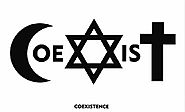
Exhibition Coexistence brings the universal message of diversity and acceptance of the other to the world community, Coexistence is a giant outdoor art exhibition ,The exhibition has visited 24 cities and continues its voyage, The images in the exhibition were selected by a prestigious international jury, There are 42 artists in the exhibition from 18 countries, A wide range of educational and cultural activities take place during the stay of the exhibition in each city.
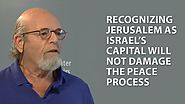
Statements by the King of Jordan, the Palestinian leadership, and Arab leaders that recognition of Jerusalem as Israel’s capital or locating the U.S. embassy in Jerusalem will endanger the peace process and bring a wave of violence, are nothing but empty threats and unfortunate attempts to threaten a sovereign government and incite. Surrendering to such threats of violence and terrorism would be a dangerous precedent and a sign of weakness.
(1)UN statements by Ambassadors Goldberg (1967) and Yost (1969), statement by Secretary of State Rogers (1969) and letter by President Carter (1978).
Resources for Intergroup Conflict, Coexistence & Dialogue Work
on the Middle East Conflict
November 2008
Adrienne Dessel, Ph.D., LCSW
The Program on Intergroup Relations
University of Michigan
adessel@umich.edu
Assistance provided by Crystal Gavin,
School of Social Work, University of Michigan

Contrary to the good intentions of donors and activists, coexistence groups barely convince the convinced. Real coexistence can't be forced.
Israel is drowning in ‘coexistence’ groups meant to break down barriers between the two national groups • Although lavishly funded and given almost exclusively positive press, they have little real impact • Seth Frantzman explains that self-selection, lack of real enthusiasm or compromise on the Palestinian side and a feeling of fakery keep this phenomenon at the margins • In the end, real coexistence is about individual compromises and friendships, not forced social utopias

Two narratives are at war on the same, slim and holy piece of land. Forget about coexistence.
Giulio Meotti - The writer, an Italian journalist with Il Foglio, writes a twice-weekly column for Arutz Sheva. He is the author of the book "A New Shoah", that researched the personal stories of Israel's terror victims, published by Encounter and of "J'Accuse: the Vatican Against Israel" published by Mantua Books.. His writing has appeared in publications, such as the Wall Street Journal, Frontpage and Commentary.
More from the author ►
Israel’s problems stem from a guilt complex. The Jewish people are, I believe, the chosen people, but are subjected to brainwashing by a small group of guilt-ridden personalities, including most of the politicians and almost all of the news media which try relentlessly to portray the Jews as a Goliath and the Arabs as a pitiful David.
While Fatah and the PLO have not yet got to the point Adolf Hitler reached in using the Jews as partners in their own destruction, the Arabs have been incredibly successful in cultivating cooperative Jewish groups, both in Israel and in the Diaspora.
That is the meaning of the new “peace talks”. A Palestinian state, they contend, is a moral imperative, a necessity and the only “solution” to the conflict. But peace treaties are temporary, not eternal. Only culture counts. And the Arabs, based on their religious and cultural perceptions, cannot sign a deal that would turn an Islamic state into a Jewish one. They can't give up Haifa and Jaffa!
Little by little, their propaganda had its effect. People, expecially in Europe, began to believe that Jews really shouldn’t be in Israel. They believe that there is a Jewish conspiracy to whitewash Israel.
The slavery in Egypt, the Babylonian Captivity, the Roman conquest, the Spanish Inquisition, the Russian pogroms, the Nazi gas chambers… History has demonstrated with regularity that the enemies of the Jews never let up. In their eyes Jews are always guilty. Guilty in Palestine, and guilty in the Diaspora. Guilty in Europe of going to the slaughter like sheep, and guilty in Israel of taking up arms so they will never be slaughtered again.
Jews are always guilty... Guilty in Europe of going to the slaughter like sheep, and guilty in Israel of taking up arms so they will never be slaughtered again.
If only Israel had lost the Six Day War to Egypt, Syria, Jordan, Lebanon and Iraq, then the Western chancelleries would have pulled from their files the form letter they dispatched when Jews were murdered by Arab terrorists, expressing condolences.
Then the memory of Israel might subsequently have been recalled in some places, and schoolchildren might have been taught about those courageous and martyrized people who fought like tigers before being thrown into the Mediterranean.
The entire mainstream media tries to portray the Arab-Israeli conflict as a problem of Judea and Samaria, and plays down what is happening inside the pre-1967 borders.
The Arab mind is not the Western mind. And even though they have polished the way they present themselves to the world, they are a cruel people. They are a people who want to spill blood. If they had the opportunity, the Arabs would carry out a Holocaust in Israel.
You have to understand the Arab standpoint too. They are thinking as Arabs should think. They are thinking that the holy land belongs to them. They are thinking that the Jews who came - a Jew from Romania, a Jew from South Africa and a Jew from New York - are interlopers who all of a sudden came and said “Israel is our country”.
How can the Arabs feel a part of that? How can an Arab see the Jewish flag, the Magen David, and feel it is his state? How can an Arab feel equal when the Law of Return allows the return of Jews but not of Arabs? Or an army composed of Jews? An Arab cannot feel equal. This is a zero-sum game.
So the Arabs have become much more subtle than the Nazis were. They have learned how to adapt to the image and semantics deemed essential for respectability among the Western democracies. Like many Jews, the hearts of many Americans go pitter-patter every time they hear words like “freedom”, “democracy”, “peace process”, “self-determination”.
When Jews came back to Judea and Samaria in 1967, the Arabs living there were walking around dressed in pajamas, they had nothing. They were starving, they were barefoot. Israel came and educated them and taught them Arabic culture. Jews brought civilization and built schools and hospitals in the hope that they would become their allies, a plan which was very naive.
Then the Israelis for years tried to give Arabs economic benefits by raising their standard of living in the hope that the Arabs would come to be loyal to Israel. But they were fools. The Arabs can’t be bought off. Here we have a country that two different groups are claiming as their own. Two narratives are at war on the same, slim and holy piece of land.
The Arabs are the Nazis of today. The same thing Hitler wanted to do in Germany they want to do here in Israel and any talk about territories is just covering up the main purpose: they don’t accept Israel. They have tremendous hatred for the Jewish people, and they would do here what the Nazis did there. They feel the Jews formed a bandit state.
If somebody breaks into your house and takes over all the rooms and agrees as part of a treaty to give you everything except for the kitchen, you’ll want to drive him out of the kitchen as well. That’s the way the Arabs feel.
That’s why there’s no chance of coexistence between Jews and Arabs, but just conflict management. In life, not everything is resolvable. But a mistake can kill you. The choices Israel faces at this historic moment may determine the Jewish destiny for centuries to come: survival or liquidation.
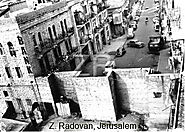
In this essay, I explore the city of Jerusalem, which not only lies at the heart of the
Israeli-Palestinian conflict but is inextricably shaped by its developments. Nominally
unified under Israeli sovereignty, Jerusalem nevertheless remains starkly divided
between an Israeli west and an occupied Palestinian east and is best understood
as a frontier city characterized by long-simmering tensions and quotidian conflict.
With its future tied to the future of the conflict, Jerusalem remains caught between
two options: the almost global preference for the city’s repartition in accordance
with a ‘two-state solution’ and the Israeli desire to maintain the status quo. A closer
look at contemporary Jerusalem, however, reveals the untenability of both options.
In this essay, I seek to document how the reality of Israeli-Palestinian division sits
alongside a dynamic of blurred separation in the city, which has forged an uneasy
coexistence of sorts. Re-thinking the frontier as a site of both conflict and coexistence,
I argue, is key to imagining future possibilities for the city that do not rest on
the desire for ethnically-pure spaces, but are rather guided by a politics of copresence
that recognizes the impossibility of disentangling Arab and Jewish histories,
memories and connections to the city

Jerusalems Hadassah Ein Karem hospital is an island of fragile sanity in an ocean of violence, where Arab and Jewish doctors work shoulder to shoulder to save the lives of both terrorists and victims of terror, regardless of the circumstances.
